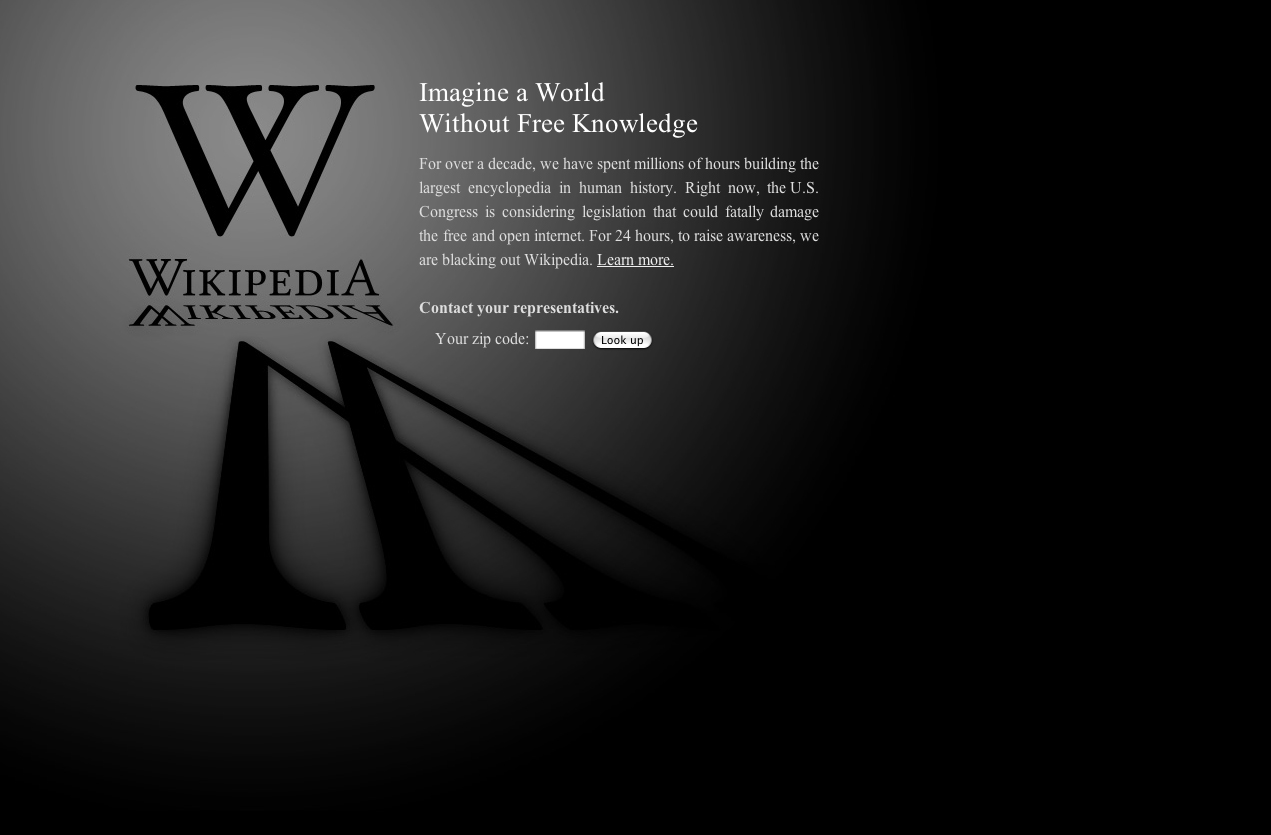Students trying to access sites such as Wikipedia, Reddit and Mozilla Firefox Tuesday night after 9 p.m. saw blacked-out screens instead of home pages.
The popular websites are participating in an Internet-wide day of protest that continues until 9 p.m. today. The protest is aimed at two anti-piracy bills in Congress ““ Stop Online Piracy Act (SOPA) and Protect Intellectual Property Act (PIPA) ““ that have been at the center of controversy in recent months.
The bills, which target Internet service providers, search engines, payment network providers and Internet advertising services, are undergoing revision in Congress. They are intended to remove pirated content from U.S.-based websites and halt the sale of pirated U.S. products in international markets.
If passed, the bills would allow the U.S. attorney general to issue an injunction against websites, advertisers and payment service providers that are linked to or conduct business with sites that endorse copyright infringement, said Donald Franzen, visiting UCLA professor of music and the law.
Fierce opposition to the bills has come from nearly every major Internet-based business, including big names such as Google, Facebook and Reddit. Google’s website is not “blacked out” completely, but users will see an altered home page to mark the company’s attitude toward the legislation.
Internet service providers are not currently liable for having infringing content on their sites, unless they get a notice from a copyright holder to take it down, Franzen said.
“Sites can safely assume they are OK until they are told to specifically take something down,” he said.
If the pieces of legislation pass, search engines such as Google would have to invest in infrastructure to destroy links to sites that engage in copyright infringement, said Parker Higgins, spokesperson for the Electronic Frontier Foundation, a nonprofit digital rights advocacy group.
Sites such as YouTube, which host a lot of user-generated material, would have to monitor constantly for infringing content, Franzen said.
That’s where the majority of the opposition comes in, said Eric Bollens, software architect in the UCLA Office of Information Technology.
“It’s very hard to locate (illegally pirated) material,” Bollens said. “To configure (websites) in such a way as to avoid that sort of content is completely unviable.”
Those in favor of the bills say the legislation targets “rogue” sites that provide pirated content ““ illegal copies of copyright-protected content ““ such as music, movies and television.
Supporters include content providers in film, media and music recording industries, such as the Motion Picture Association of America and Universal Music Group.
“While (opponents of SOPA and PIPA) like to portray themselves as brave Internet freedom fighters, (they) are in reality doing little more than protecting their own business interests,” the Motion Picture Association said in a statement on its website. “They profit from illegal activities, and they will vigorously resist legislation that seeks to put this practice to an end.”
Barbara Boyle, chair and professor of the UCLA School of Film, Television and Digital Media, said that as a lawyer she understands the value of intellectual property and that there is no doubt in her mind that emerging technologies and platforms have created an incredible problem in traditional copyright law.
The issue comes down to free speech versus property rights, Boyle said. Copyrights should be more limited and should not last indefinitely, she added.
While the vote for SOPA has been delayed in the House of Representatives, the Senate will vote on PIPA on Jan. 24.
